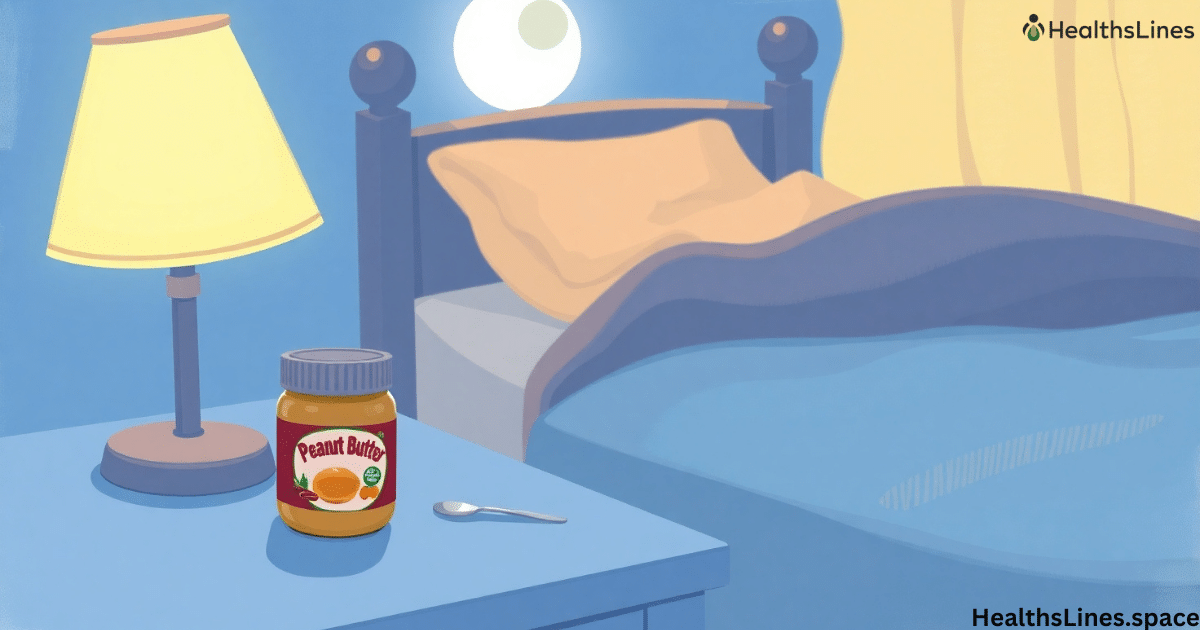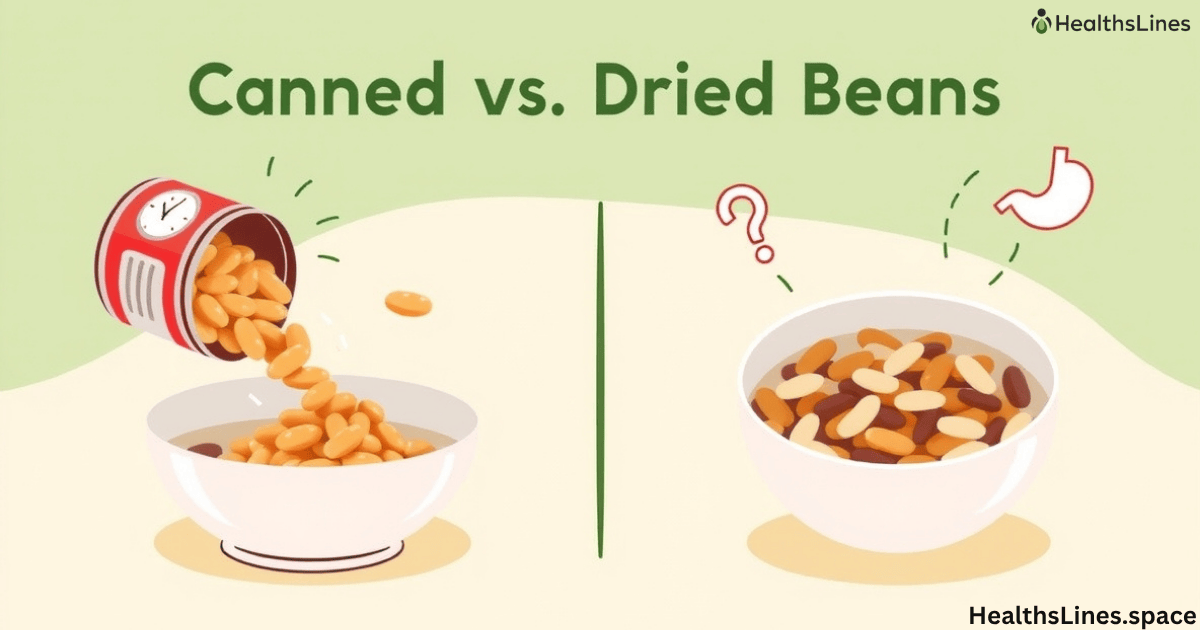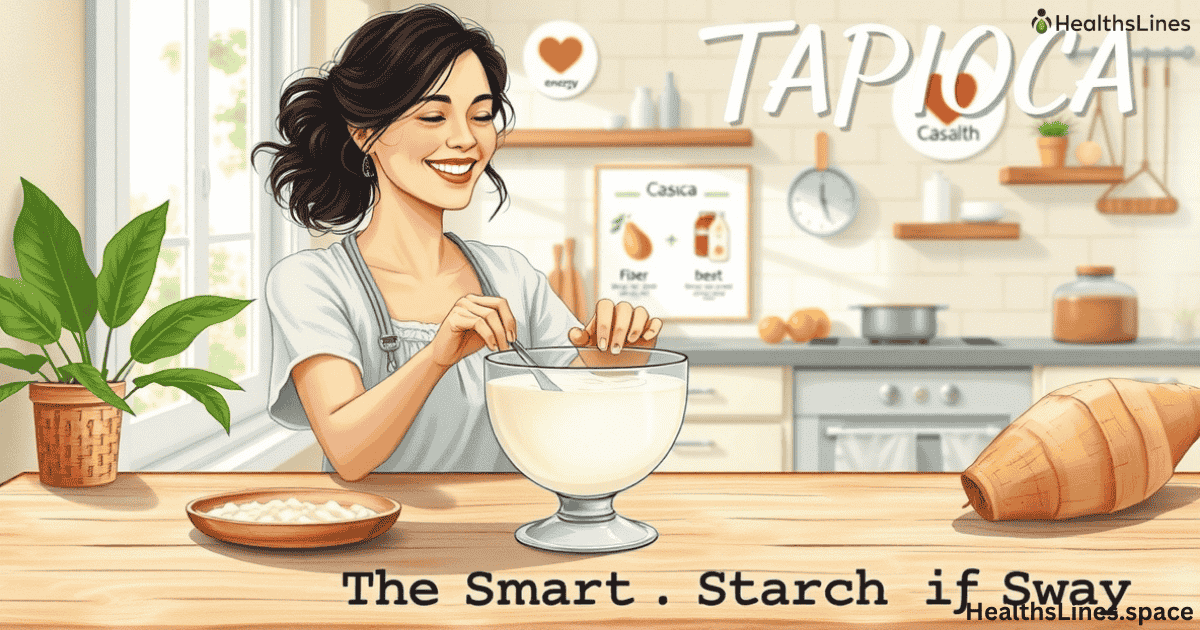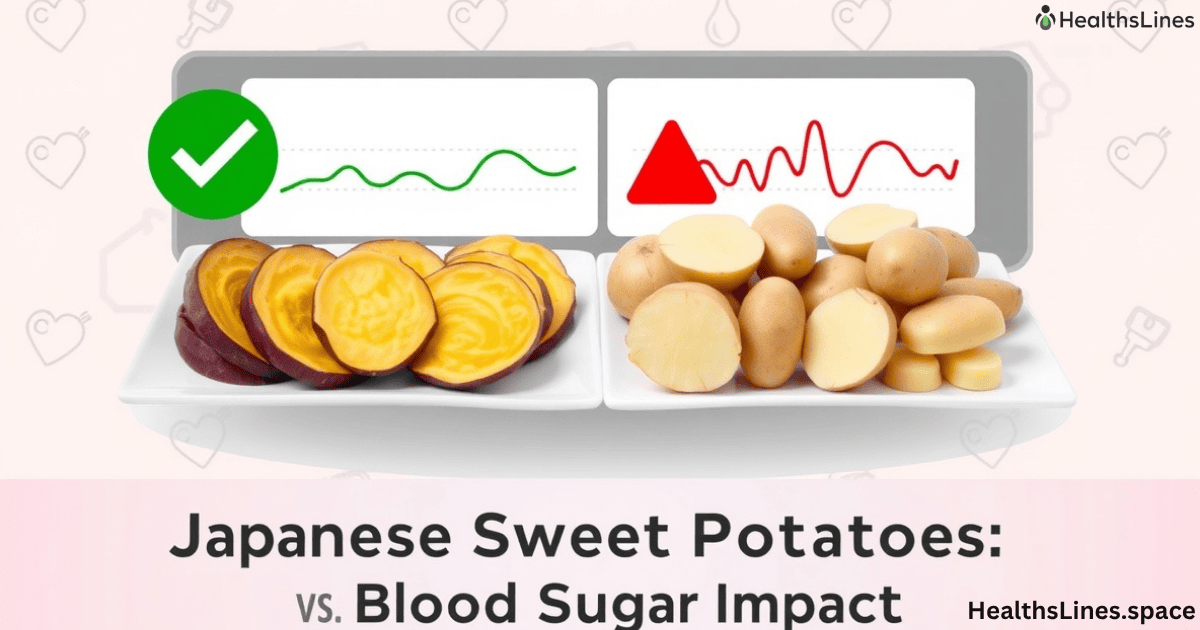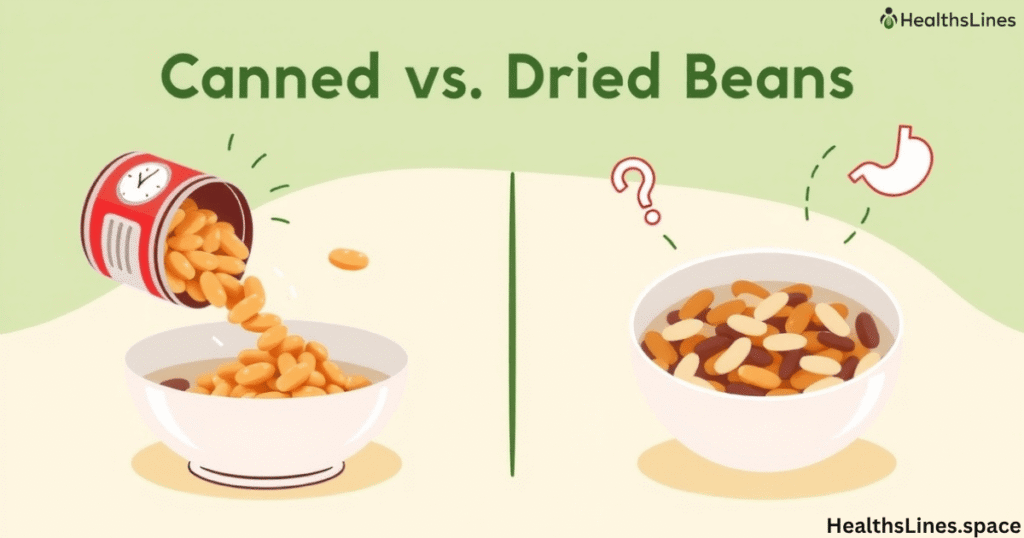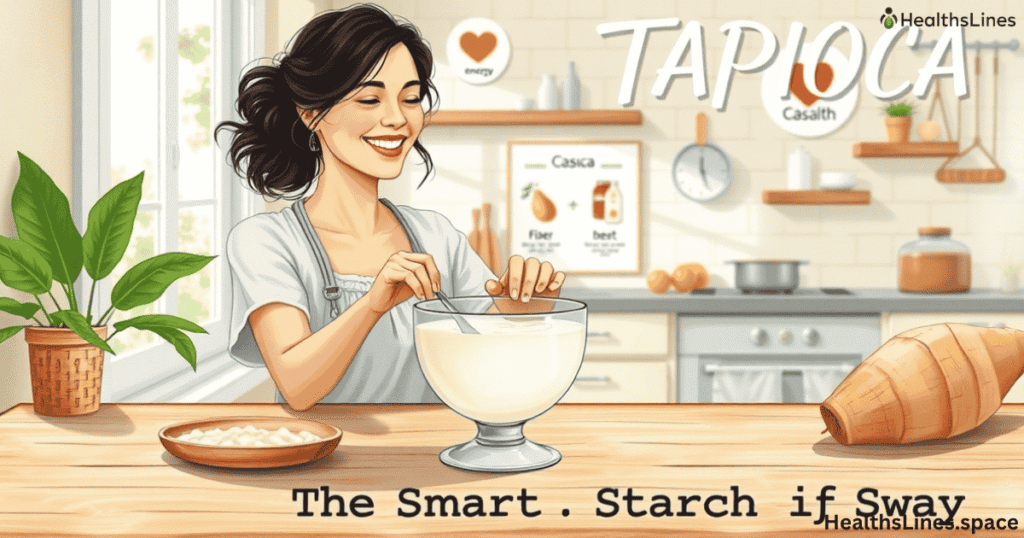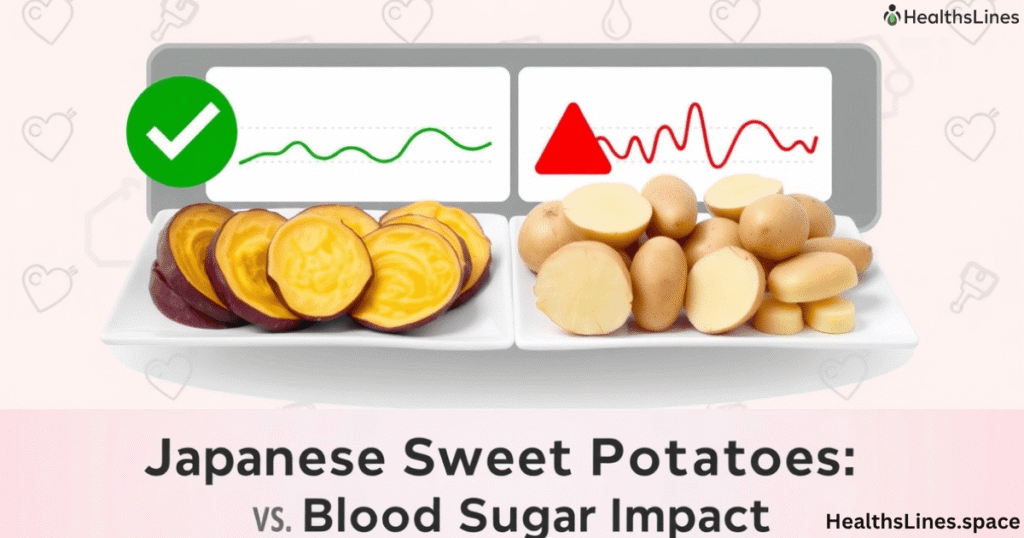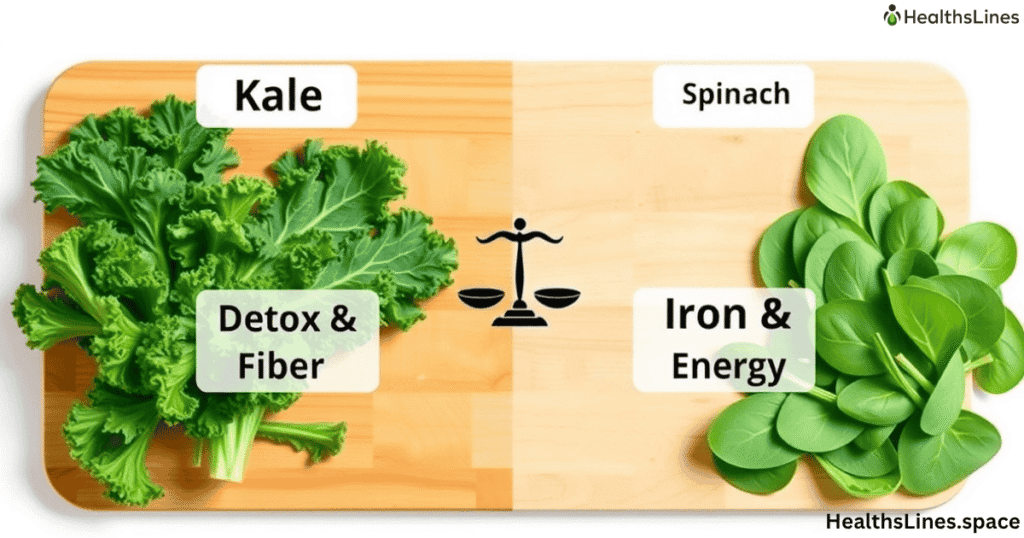Many people struggle with sleep. Some wake up in the middle of the night hungry. Others toss and turn, searching for ways to rest better. One food often mentioned as a bedtime helper is peanut butter before bed. But does it really work, or is it just a tasty myth?
Peanut butter is more than just a spread for toast. It’s full of protein, healthy fats, and key nutrients that may calm the body and help you stay asleep longer. Still, it also carries risks if eaten the wrong way or at the wrong time. In this article, we’ll look closely at what science, nutrition, and real stories say about eating peanut butter before sleep.
How Peanut Butter Affects Sleep
The reason many people ask if peanut butter helps you sleep comes down to a special nutrient inside it: tryptophan. Tryptophan is an amino acid, which is a building block of protein. When your body gets tryptophan, it uses it to make serotonin and melatonin. Serotonin helps you feel calm, while melatonin is the main hormone that controls sleep.
Peanut butter also has protein and healthy fats that work together to keep blood sugar stable. Stable blood sugar at night means fewer energy spikes or drops, both of which can wake you up. Because peanut butter digests slowly, it may keep you full and stop late-night hunger. For people who exercise, having protein snacks before bed like peanut butter can also help muscles recover overnight.
Peanut Butter and Sleep in People with Diabetes
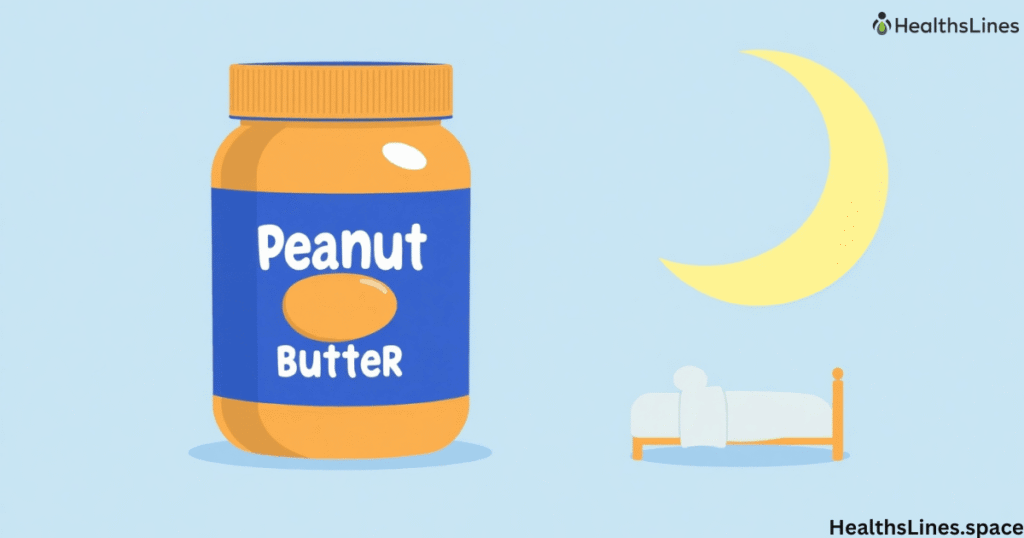
For people with diabetes, bedtime can be tricky. Blood sugar often rises or falls while sleeping, which can cause health problems or wake them up. A small serving of peanut butter at night can help with this. The mix of protein and fat slows down how quickly sugar enters the blood. This makes glucose levels steadier while you rest.
Doctors sometimes suggest a peanut butter bedtime snack for diabetics. It works even better when eaten with a slice of whole grain bread or a piece of fruit. The carbs give the body a slow release of sugar, while peanut butter balances it with protein and fat. Some studies show that people with type 1 diabetes who ate protein and fat snacks before bed had fewer episodes of low blood sugar overnight. This makes peanut butter a simple but powerful tool for peanut butter and diabetes at night.
Benefits for People Without Diabetes
Peanut butter at bedtime is not only for diabetics. Even people without blood sugar problems can enjoy benefits. Hunger late at night is common. If you wake up because your stomach is growling, it can ruin sleep. A spoon of peanut butter is filling and nutrient-rich. It stops cravings and lets you sleep through the night.
Peanut butter also contains minerals like magnesium and niacin. Magnesium is known for its role in calming the body and supporting magnesium and sleep quality. Niacin, a type of vitamin B, helps turn food into energy and supports the nervous system. Together, these nutrients may reduce stress and make it easier to relax before bed. This is why many health experts include peanut butter in lists of foods that help you sleep.
Best Practices for Eating Peanut Butter Before Bed
Not all peanut butters are the same. If you want to use it as a peanut butter bedtime snack, choose natural versions with only peanuts and maybe a little salt. Avoid processed brands with added sugar and oils. Added sugar can cause energy spikes and may disturb sleep hormones.
The best time to eat peanut butter before bed is about one to two hours before sleeping. This gives your body time to digest without feeling heavy. The right portion is one to two tablespoons. Eating more than that adds extra peanut butter calories before bed, which may lead to weight gain. For even better results, pair peanut butter with healthy carbs. For example, peanut butter and banana before bed boosts melatonin from the banana while providing potassium for muscle relaxation.
Here is a table showing simple healthy bedtime snack ideas with peanut butter:
| Bedtime Snack | Sleep Benefit | What to Watch |
| Peanut butter on whole grain toast | Balanced protein + carbs | Stick to one slice |
| Peanut butter with banana | Extra melatonin + potassium | Higher sugar content |
| Peanut butter with oats | Slow energy release | Too heavy if eaten late |
| Peanut butter alone | Quick and easy | Not the best for tryptophan absorption |
Risks and Considerations
Even though peanut butter can be helpful, it’s not perfect for everyone. One big concern is peanut butter and weight gain. Peanut butter is very calorie-dense. Just two tablespoons have about 180–200 calories. If you eat too much at night without cutting calories elsewhere, you may slowly gain weight.
Another risk is peanut butter and acid reflux. Foods high in fat can relax the muscle between the stomach and the esophagus. This makes stomach acid more likely to flow upward, causing heartburn. If you have GERD, eating peanut butter too close to bedtime may make sleep worse, not better. Allergies are another issue. For those allergic to peanuts, the risks far outweigh the benefits, and alternatives like almond butter or Greek yogurt should be used instead.
Scientific Evidence and Expert Opinions
The question remains: is peanut butter before bed good for sleep? Direct studies on peanut butter are rare, but research on its nutrients shows promise. Studies on tryptophan and sleep show that eating tryptophan-rich foods can improve sleep quality. In one trial, participants who ate tryptophan-rich protein had better sleep patterns than those who didn’t.
Experts also highlight the role of protein at night. Dr. Michael Breus, a well-known sleep specialist, says small protein-rich snacks before bed can help reduce nighttime hunger. Nutritionists agree that the best way to enjoy peanut butter and sleep quality is to pair it with carbs, which allow more tryptophan to enter the brain. This supports the idea of peanut butter and sleep hormones working together for better rest.
Case Study Example
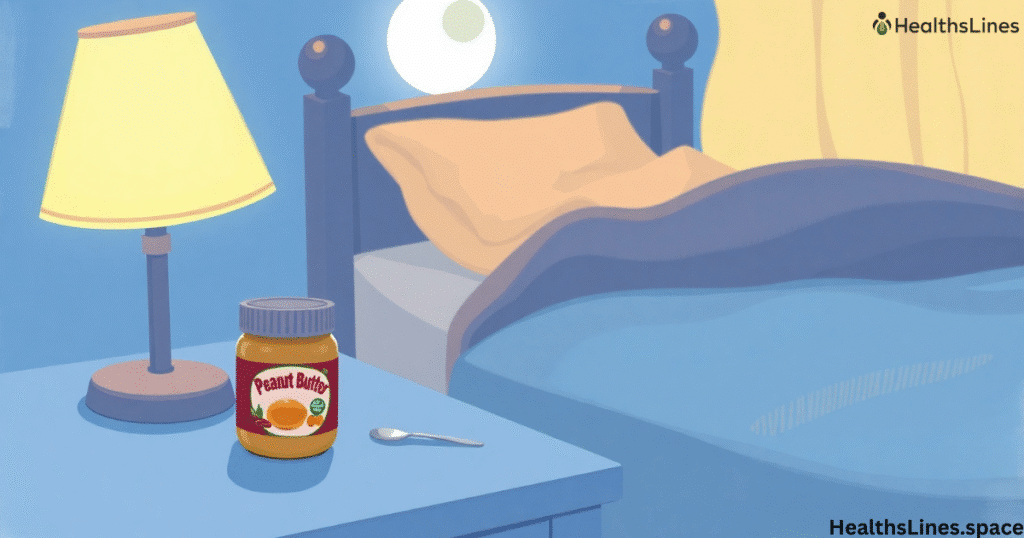
Consider Maria, a 45-year-old with type 2 diabetes. She often woke at 3 a.m. with low blood sugar. After speaking with her doctor, she began having one tablespoon of natural peanut butter vs processed brands, spread on half a slice of whole grain toast before bed. Within two weeks, her nighttime sugar crashes decreased, and she reported more peaceful sleep. Her case shows how peanut butter and blood sugar control can directly improve sleep quality.
Another example comes from James, a college student without diabetes. He used to grab chips at night, which made him restless and heavy in the morning. He switched to peanut butter and whole grain toast before bed. The balanced snack kept him full without overloading on salt and fat, and he reported better mornings with more energy.
Final Thoughts
So, does peanut butter make you sleepy? The answer is not a simple yes or no. For many people, a small spoonful of peanut butter before bed can support better rest. It offers tryptophan, protein, healthy fats, and calming minerals. For diabetics, it can help stabilize blood sugar. For others, it can prevent late-night hunger and support natural peanut butter and melatonin production.
Still, peanut butter is not a magic cure for insomnia. It should be eaten in small portions, at the right time, and paired with healthy carbs for the best effect. Too much can lead to weight gain, digestive issues, or acid reflux. The smartest way to know if it helps is to try it for yourself. Start with one spoonful an hour before bed and notice how your body reacts. If you feel calmer and sleep longer, it might be the best nighttime snack for you.
